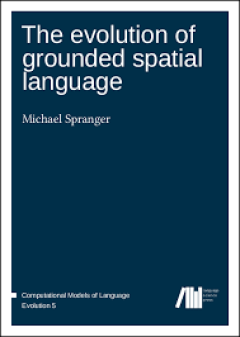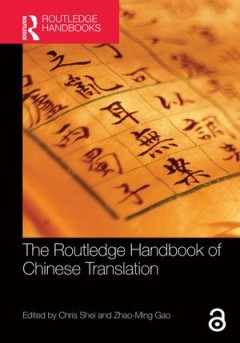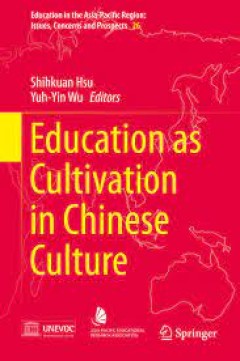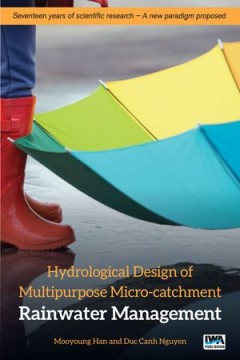Filter by

The evolution of grounded spatial language
This book presents groundbreaking robotic experiments on how and why spatial language evolves. It provides detailed explanations of the origins of spatial conceptualization strategies, spatial categories, landmark systems and spatial grammar by tracing the interplay of environmental conditions, communicative and cognitive pressures. The experiments discussed in this book go far beyond previous …
- Edition
- -
- ISBN/ISSN
- 9783944675466
- Collation
- -
- Series Title
- -
- Call Number
- -

World Literatures Exploring the Cosmopolitan-Vernacular Exchange
"Placing itself within the burgeoning field of world literary studies, the organising principle of this book is that of an open-ended dynamic, namely the cosmopolitan-vernacular exchange. As an adaptable comparative fulcrum for literary studies, the notion of the cosmopolitan-vernacular exchange accommodates also highly localised literatures. In this way, it redresses what has repeatedly been i…
- Edition
- -
- ISBN/ISSN
- 9789176350782
- Collation
- -
- Series Title
- -
- Call Number
- -

The Routledge Handbook of Chinese Translation
The Routledge Handbook of Chinese Translation presents expert and new research in analysing and solving translation problems centred on the Chinese language in translation.The Handbook includes both a review of and a distinctive approach to key themes in Chinese translation, such as translatability and equivalence, extraction of collocation, and translation from parallel and comparable corpora.…
- Edition
- 1
- ISBN/ISSN
- 1317383028, 9781317383024
- Collation
- -
- Series Title
- -
- Call Number
- 400 ROU

Creating the Intellectual Chinese Communism and the Rise of a Classification
This book offers a new analysis of the intellectual and the Chinese socialist revolution. Under the Chinese Communist Party, the intellectual was never simply an outspoken scholar, a browbeaten artist, a supportive official, or any kind of person facing an increasingly powerful political regime. The intellectual was first and foremost a widening classification of people based on Marxist thought…
- Edition
- -
- ISBN/ISSN
- 9780520303690
- Collation
- -
- Series Title
- -
- Call Number
- -

Education as Cultivation in Chinese Culture
Given the increasing global interest in Chinese culture, this book uses case studies to describe and interpret Chinese cultivation in contemporary Taiwanese schools. Cultivation is a concept unique to Chinese culture and is characterized by different attitudes towards teaching and learning compared to Western models of education. The book starts with a discussion of human nature in Chinese scho…
- Edition
- 1
- ISBN/ISSN
- 978-981-287-223-4
- Collation
- -
- Series Title
- 20 b/w illustrations
- Call Number
- VIII, 288

Writing Pirates: Vernacular Fiction and Oceans in Late Ming China
In Writing Pirates, Yuanfei Wang connects Chinese literary production to emerging discourses of pirates and the sea. In the late Ming dynasty, so-called “Japanese pirates” raided southeast coastal China. Hideyoshi invaded Korea. Europeans sailed for overseas territories, and Chinese maritime merchants and emigrants founded diaspora communities in Southeast Asia. Travel writings, histories, …
- Edition
- -
- ISBN/ISSN
- 9780472902484
- Collation
- -
- Series Title
- -
- Call Number
- -
 Computer Science, Information & General Works
Computer Science, Information & General Works  Philosophy & Psychology
Philosophy & Psychology  Religion
Religion  Social Sciences
Social Sciences  Language
Language  Pure Science
Pure Science  Applied Sciences
Applied Sciences  Art & Recreation
Art & Recreation  Literature
Literature  History & Geography
History & Geography